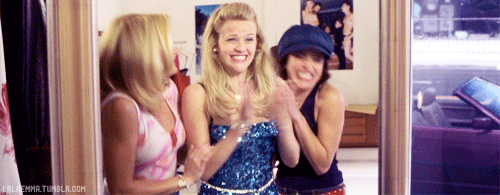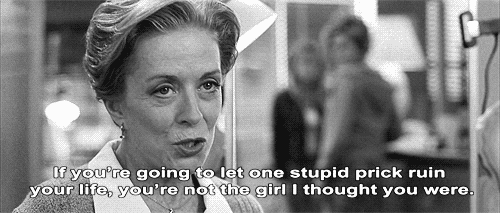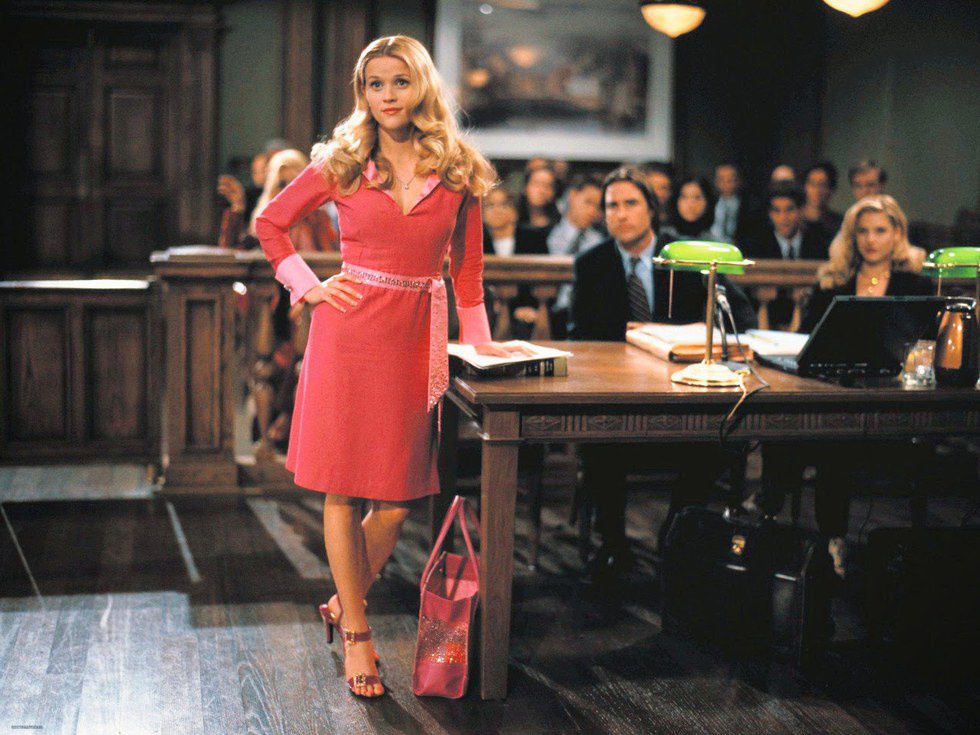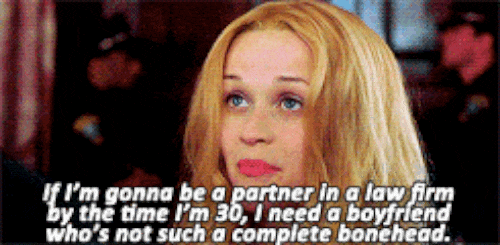This past week marked the anniversary of the debut of everyone's favorite pink-obsessed, Chihuahua-toting law student. That's right: Elle Woods and "Legally Blonde" turned 15 on July 13, and to celebrate the occasion I watched the movie for the first time. I had heard more about Elle's bend and snap than her status as a feminist icon, so I was surprised to find the movie was a treasure trove of feminism. Here are just a few of the ways the movie displayed female empowerment:
1. Tight, supportive friendships between women.
At the heart of this movie are the relationships between Elle and the women around her, from her sorority sisters to her manicurist to her former nemesis. All of these women can be petty and shallow, but they also display encouragement, empathy and loyalty. They don't let differences in status and lifestyle or squabbles over a man's affection prevent them from forming strong friendships.
2. Women prove they deserve positions of power...
Did you notice how many high-power roles in the movie were filled by women? The first (and scariest) law professor at Harvard, the judge in the court, and many of Elle's fully qualified (and Ph.D.-holding) classmates were women. Moreover, some of the men in power, such as Elle's sleazy law professor, were shown to abuse their power. The movie doesn't hesitate to reassign traditional roles to those, male or female, who best deserve them.
3. ...and can pretty much do whatever they put their mind to...
It's a movie about a girl with a bachelor's degree in fashion who decides she's going to Harvard on a whim--and succeeds. Yes, she had to work hard to get there, but that's just the point: when everyone told her she was too girly and stupid to achieve her goals, she showed them that she was capable of anything, and she wasn't going to let their preconceived ideas affect her success.
4. ...without sacrificing their femininity.
Some people seem to think that feminists can't also be feminine. But Elle, through her often alarmingly pink outfits and the way she wins trials by knowing basic hair care, shows that it's possible to be both. It's a reminder that feminism doesn't demand that women stop shaving their legs and wear baggy clothes; rather, it just asserts women's right and ability to be whoever they want, regardless of society's expectations.
5. Women don't need no men, but they don't hate them.
Throughout the movie, Elle grows to understand her worth and potential independent from the men around her. She doesn't hesitate to remove them from her life if they become toxic influences, and she helps her friends make similar progress. But that doesn't mean the women of this movie are man-haters. Paulette makes a good example: she was able to move on from a man who treated her poorly, and would've thrived by herself, but she was willing to invest in a man who was actually worth her time.
"Legally Blonde" has a lot of lessons to teach women about empowerment. So remember this film the next time you need encouragement, motivation, or just want to watch a woman kick the patriarchy's butt.


























